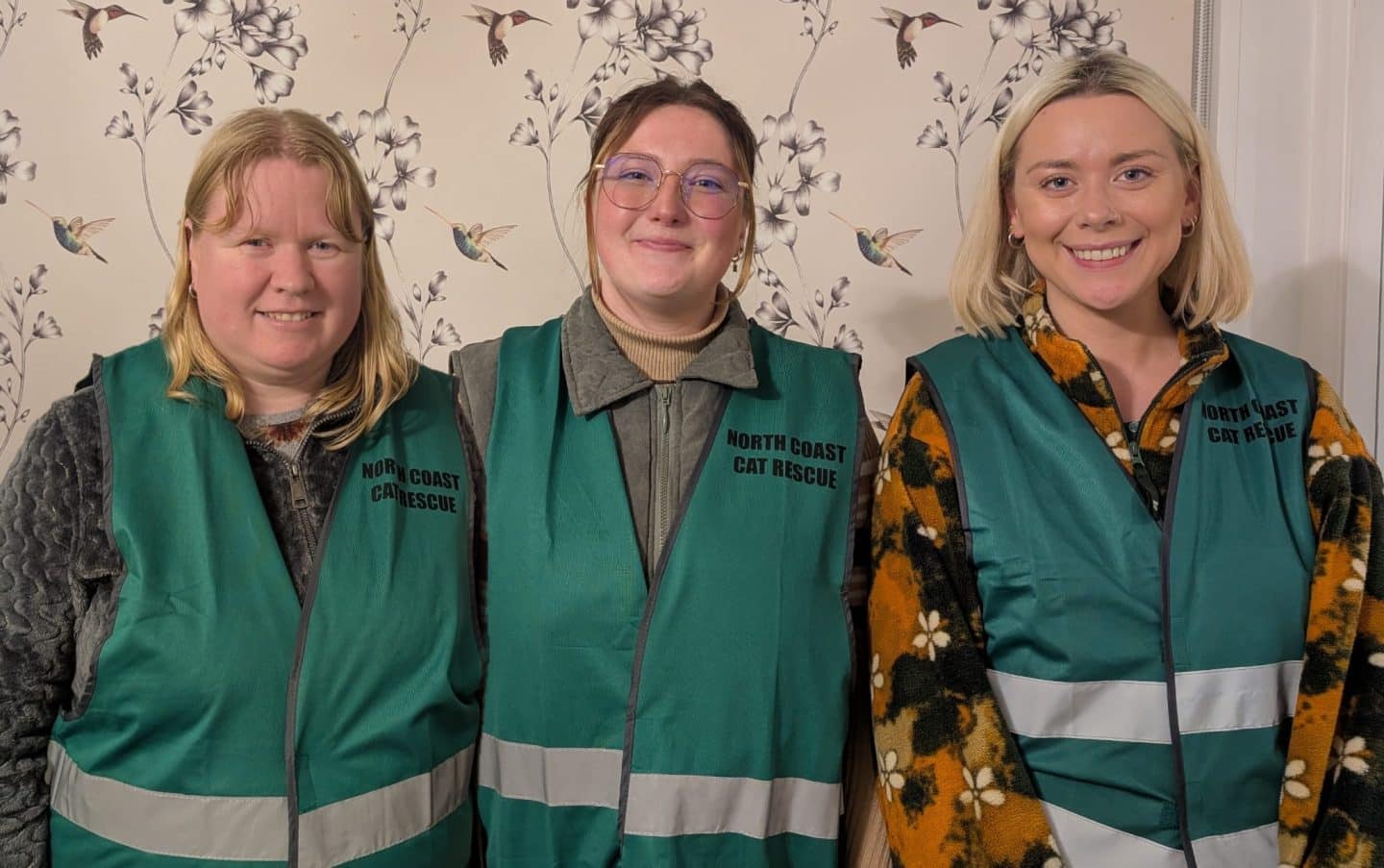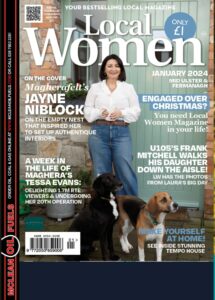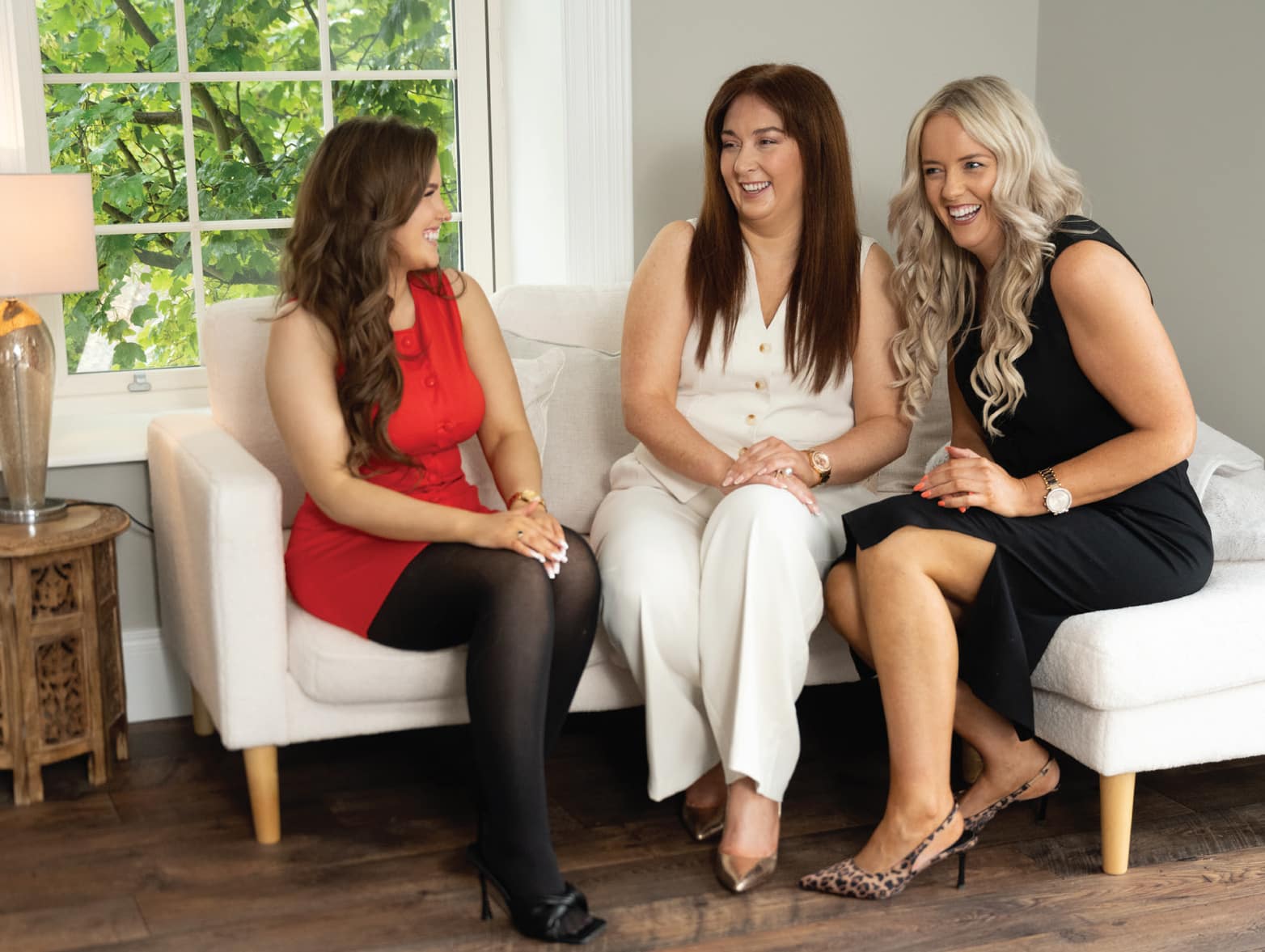NORTH COAST LADIES ARE ‘FELINE’ FINE

With an explosion in the number of wild cats living in colonies in the North Coast, three local women have set up a new charity to neuter and return them safely so they can live their (nine) lives healthier and happier.
By Maureen Coleman
A shared passion for the welfare of animals has led three women from the North Coast to set up a cat rescue charity with the aim of eradicating overbreeding and interbreeding within local feral cat colonies.
Chloe McGarvey, from Portrush, Alison Hagan from Coleraine and Leah Cox from Bushmills launched North Coast Cat Rescue in September this year, after identifying the need for a spaying and neutering service for wild cats living in colonies in the area.
Since lockdown, when both veterinary and voluntary services were suspended, Northern Ireland has seen an explosion in the number of feral cats. The new charity’s aim is to humanely trap, neuter and return these cats to a safe environment, leading to longer and healthier lives for the cats.
Chloe, who volunteers in social media, explains why the charity came about.
“I know Alison and Leah through other animal rescue charities which we were involved with,” she says.
“We wanted to set something up in the North Coast area where we could focus on the humane trapping, neutering and returning of feral cats.
“There are a lot of rural places and farmland around here where feral cats congregate and if they remain unneutered, they will continue to breed, and the numbers of cats can get out of control.
“A story about a large cat colony found living in a council skip in Magherafelt made the news not that long ago and since we’ve launched, we’ve been told of three businesses in Portrush alone which have feral cat colonies.”
Chloe says that feral cats often stay in a place where there’s a source of food such as litter, rodents that feed on the litter and kind-hearted people who feed and provide them with water and shelter. Farms and barns which attract rodents are particularly popular and in many cases, the landowners are happy to have the cat colonies on site to eradicate the mice and rats.
“Often with colonies, the cats are fed and sheltered and don’t want to move on,” says Chloe.
“We took a call from a woman on farmland just outside Ballymoney who feeds 12 cats in one colony.
“The issue is that female cats can get pregnant from the age of four months and up to four or five times a year, so there’s this constant cycle of feral kittens being born and growing up feral.
“Constant pregnancy can be very stressful for the cats, particularly if they’re not being looked after, and many kittens simply don’t survive to adulthood.”
As well as controlling overbreeding, there are health reasons why North Coast Cat Rescue favour the TNR method. Neutering in females can reduce ovarian cancer and is better for the overall wellbeing of the cat. In tom cats, neutering reduces aggression and the diseases and infections often caused by fighting with other unneutered cats.
“We have volunteer trappers who use humane cat traps which don’t hurt them at all,” explains Chloe.
“A cover is put over the trap once the cat has been caught and once they are settled, they are brought to the vet for neutering then returned to the person whose land they were on or who was caring for them.
“Relocation is a last resort and anyway, if you move one colony on, another group of cats will move in.”
Due to a lack of socialisation, feral cats are fearful of interactions with humans. But in some cases, young kittens can be rehomed if they respond well to that interaction.
Chloe says the ‘socialisation window’ ends at between eight and 12 weeks and if missed, the kitten will likely remain wild.
“Feral cats don’t even miaow as that is learned behaviour from humans,” she says.
“Sometimes people will feed them in the hope of taking them in, but if it’s a true feral cat which has missed that socialisation window and isn’t used to be petted, it will remain fearful and wild and not the lap cat the person feeding them is hoping for.”
In situations where colonies must be rehomed, the team at North Coast Cat Rescue ensure the environment is safe. In a recent case, a group of cats found in a retail park in Coleraine had to be moved on because of the risk posed by traffic. If there’s a chance a cat can be placed in a home, the team will arrange that, but in most feral cases, they are relocated to a barn or farmland, with the owner’s consent.
Rehoming is a side mission for the charity with two kittens taken in since it launched. Alison, an experienced cat fosterer who has also looked after dogs and birds, cared for a kitten named Magic, which was discovered in a caravan park in Portstewart, while the second kitten, Hunter, was found after having travelled in a car engine, with minor injuries. Both now have new homes.
In cases like these, the women advertise locally to see if anyone is missing a kitten or cat, then the animal is scanned for a microchip and brought to the vet for a check-up. The charity also uses its social media to post about lost pets on behalf of their owners. But its main drive is the trapping, neutering and returning of ferals.
“All three of us in the charity are animal lovers and we also have another trustee, a woman called Christine Passey who volunteers remotely from England for us as our secretary,” says Chloe.
“I’ve got one cat, Leah, who works for the Butterfly Conservation charity, has two and Alison has three, so it’s fair to say we’re all huge cat lovers.
“Our ethos is to promote good cat welfare and to educate the public on the difference between feral and pet cats.
“The thing with feral cats is that they want to be outside, away from people; that’s their home, and as long as they’re safe and healthy, they’re content.
“Eradicating overbreeding and interbreeding leads to a happier life.”
With Christmas just weeks away, the charity is keen to reissue a festive message around buying kittens for gifts.
“We’ve all heard it said before, but cats really just aren’t for Christmas,” says Chloe.
“They need attention, interaction and stimulation and sometimes it takes up to four or five months for a kitten or cat to settle in.
“Most cats have a life expectancy of around 12 to 18 years. It’s a big commitment and people should be aware of this.”
North Coast Cat Rescue is funded by public donations and relies on the help of volunteers. To this end, the charity is appealing to the generosity of North Coast residents to dig deep this festive season or to give up their free time to assist.
“Neutering is not cheap; even small colonies can cost us hundreds of pounds, so we have a big fundraising drive going on over on Facebook,” Chloe says.
“The volunteering roles don’t even have to be hands-on as we need help with admin and social media too.
“So, if you’re thinking about donating or volunteering with us, drop us a line at northcoastcatrescue@gmail.com.”










